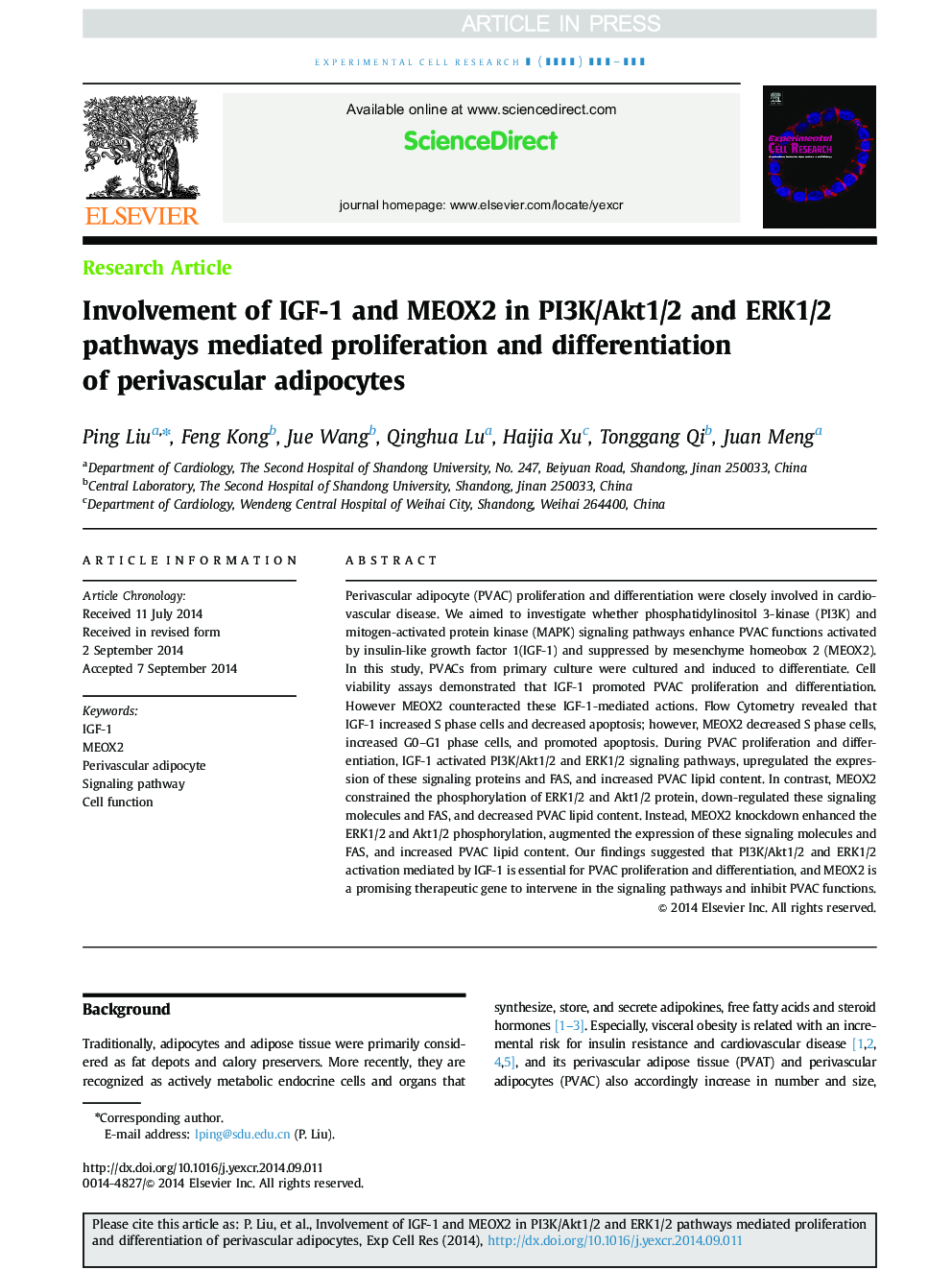| Article ID | Journal | Published Year | Pages | File Type |
|---|---|---|---|---|
| 10903933 | Experimental Cell Research | 2015 | 15 Pages |
Abstract
Perivascular adipocyte (PVAC) proliferation and differentiation were closely involved in cardiovascular disease. We aimed to investigate whether phosphatidylinositol 3-kinase (PI3K) and mitogen-activated protein kinase (MAPK) signaling pathways enhance PVAC functions activated by insulin-like growth factor 1(IGF-1) and suppressed by mesenchyme homeobox 2 (MEOX2). In this study, PVACs from primary culture were cultured and induced to differentiate. Cell viability assays demonstrated that IGF-1 promoted PVAC proliferation and differentiation. However MEOX2 counteracted these IGF-1-mediated actions. Flow Cytometry revealed that IGF-1 increased S phase cells and decreased apoptosis; however, MEOX2 decreased S phase cells, increased G0-G1 phase cells, and promoted apoptosis. During PVAC proliferation and differentiation, IGF-1 activated PI3K/Akt1/2 and ERK1/2 signaling pathways, upregulated the expression of these signaling proteins and FAS, and increased PVAC lipid content. In contrast, MEOX2 constrained the phosphorylation of ERK1/2 and Akt1/2 protein, down-regulated these signaling molecules and FAS, and decreased PVAC lipid content. Instead, MEOX2 knockdown enhanced the ERK1/2 and Akt1/2 phosphorylation, augmented the expression of these signaling molecules and FAS, and increased PVAC lipid content. Our findings suggested that PI3K/Akt1/2 and ERK1/2 activation mediated by IGF-1 is essential for PVAC proliferation and differentiation, and MEOX2 is a promising therapeutic gene to intervene in the signaling pathways and inhibit PVAC functions.
Keywords
Related Topics
Life Sciences
Biochemistry, Genetics and Molecular Biology
Cancer Research
Authors
Ping Liu, Feng Kong, Jue Wang, Qinghua Lu, Haijia Xu, Tonggang Qi, Juan Meng,
